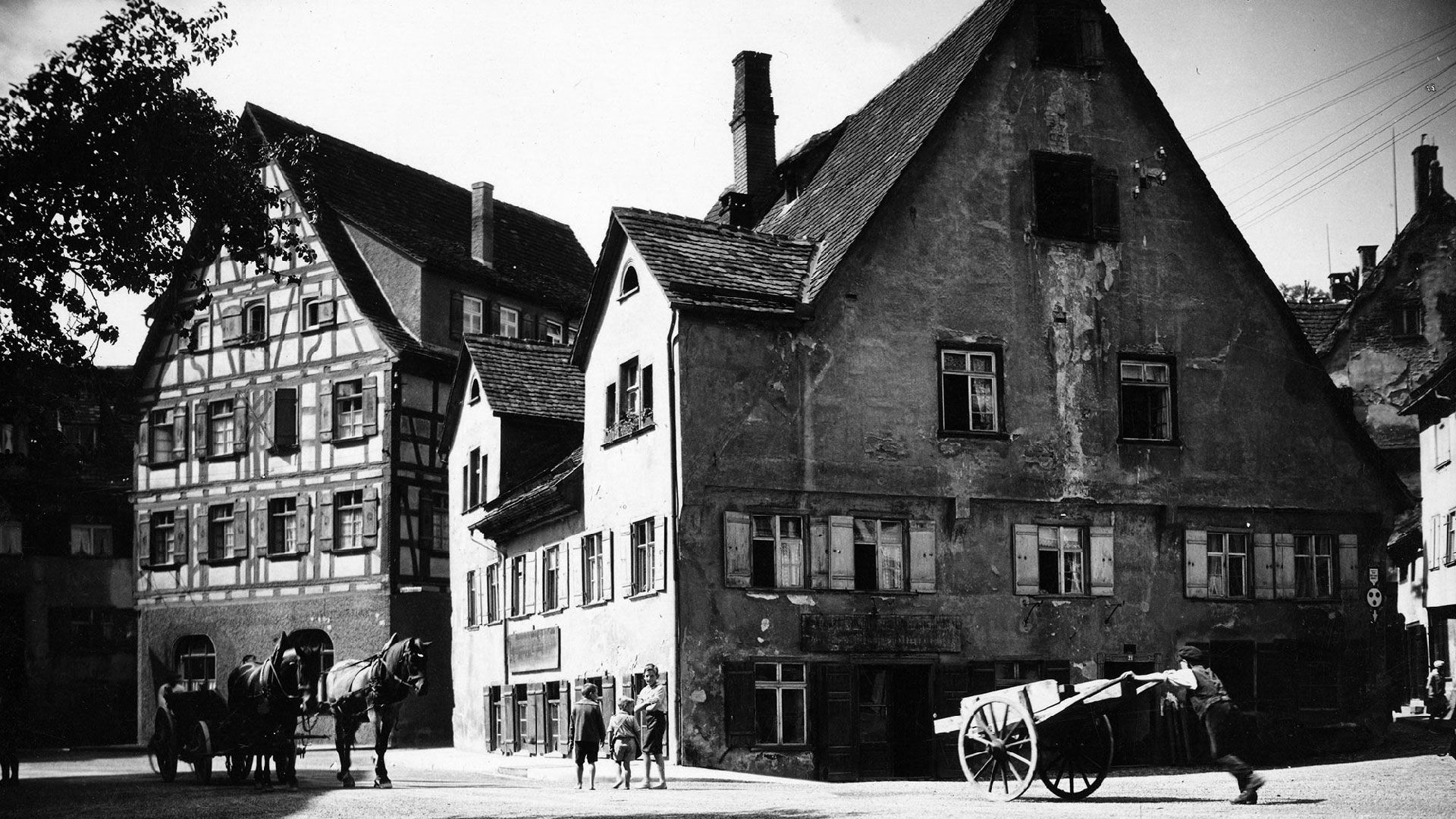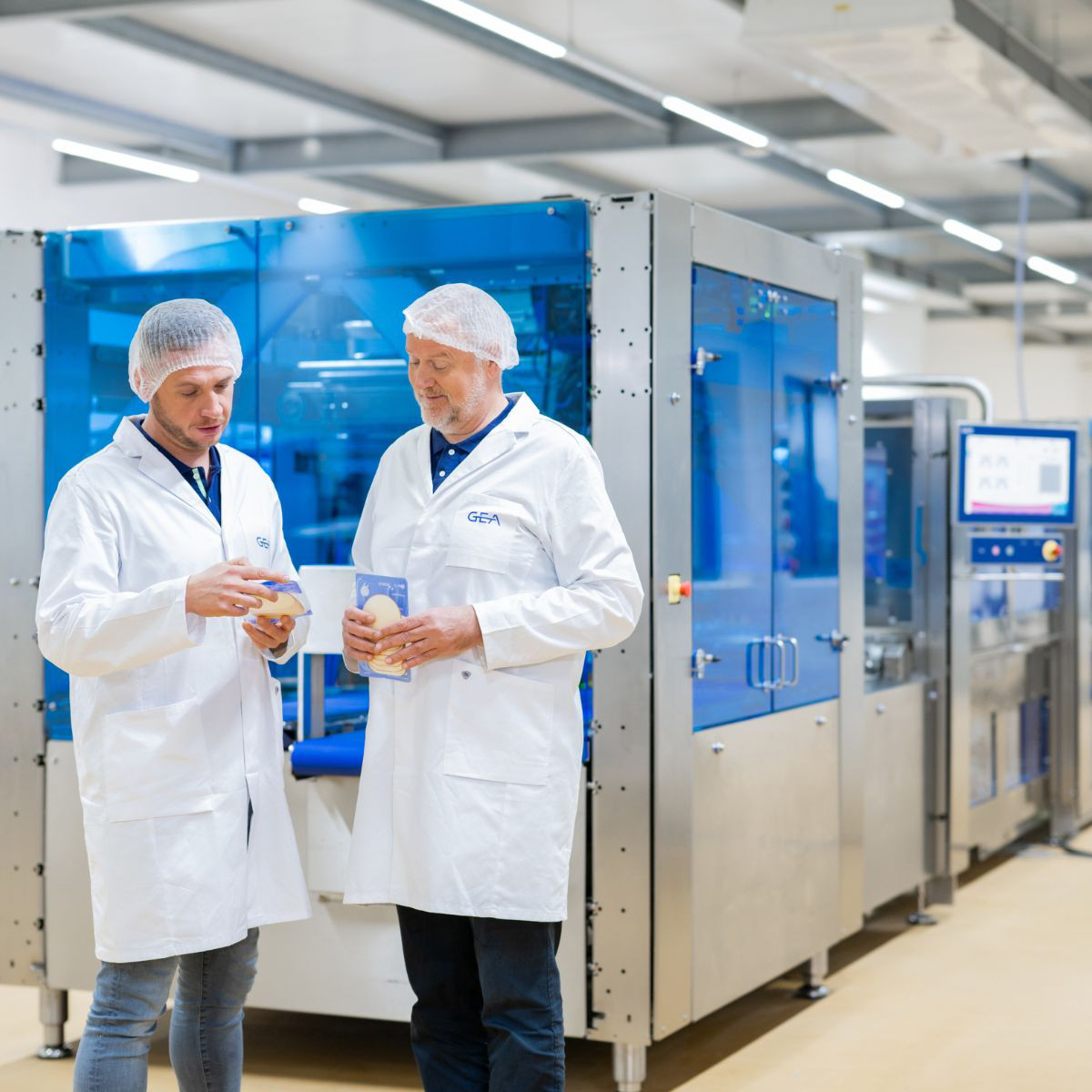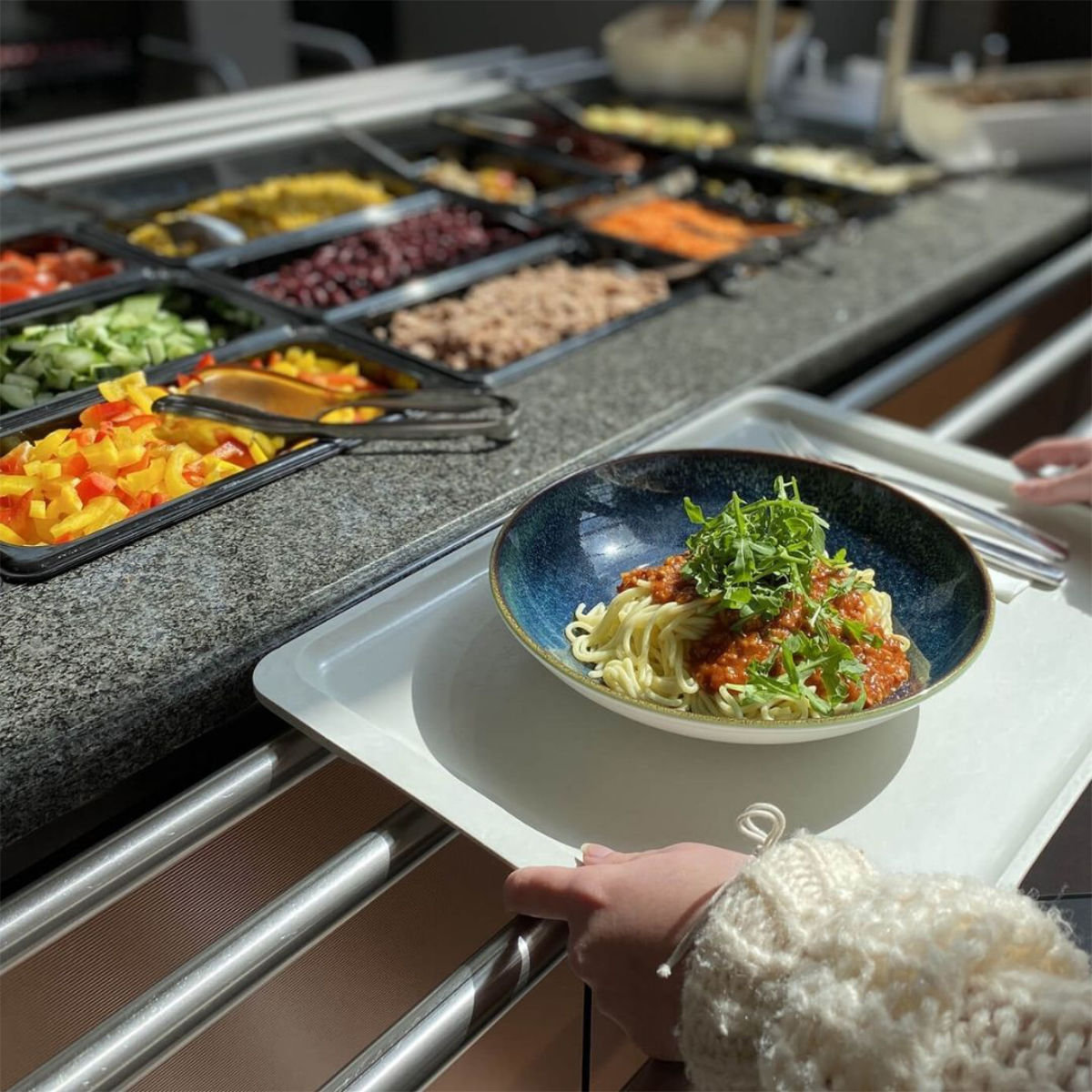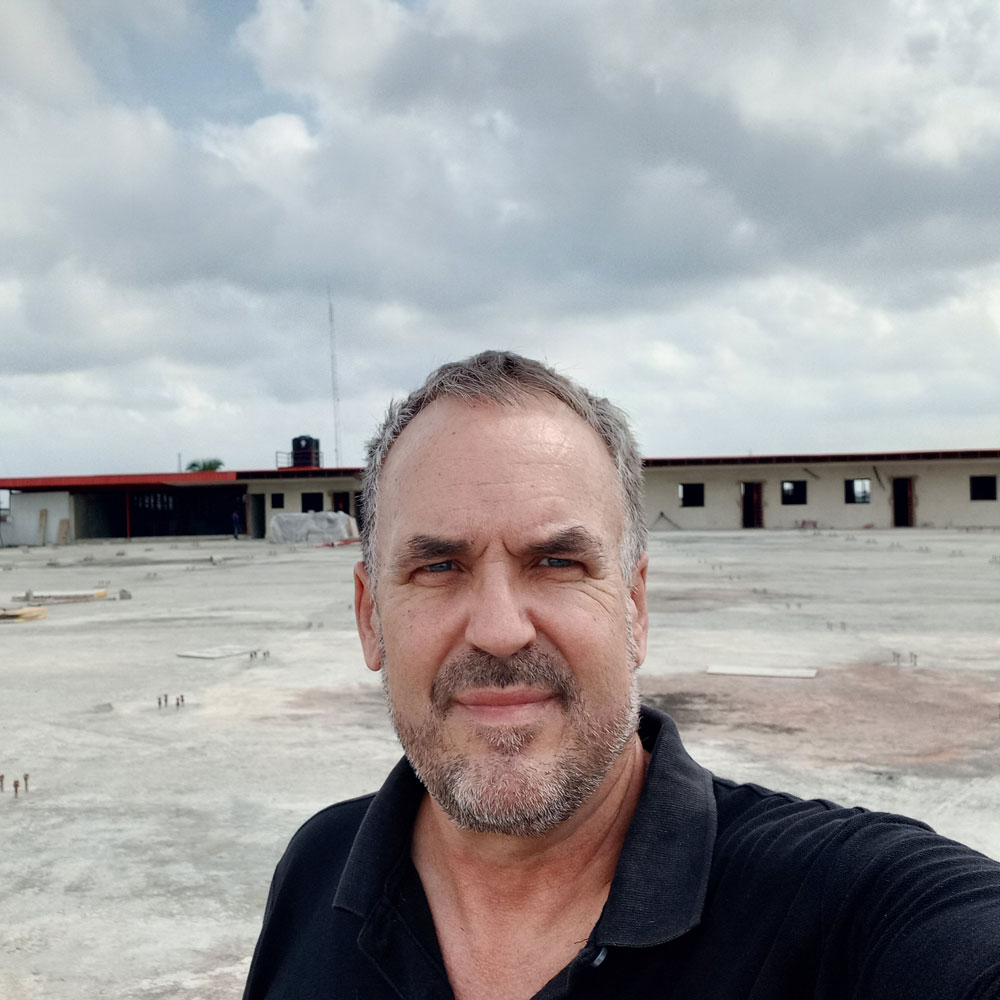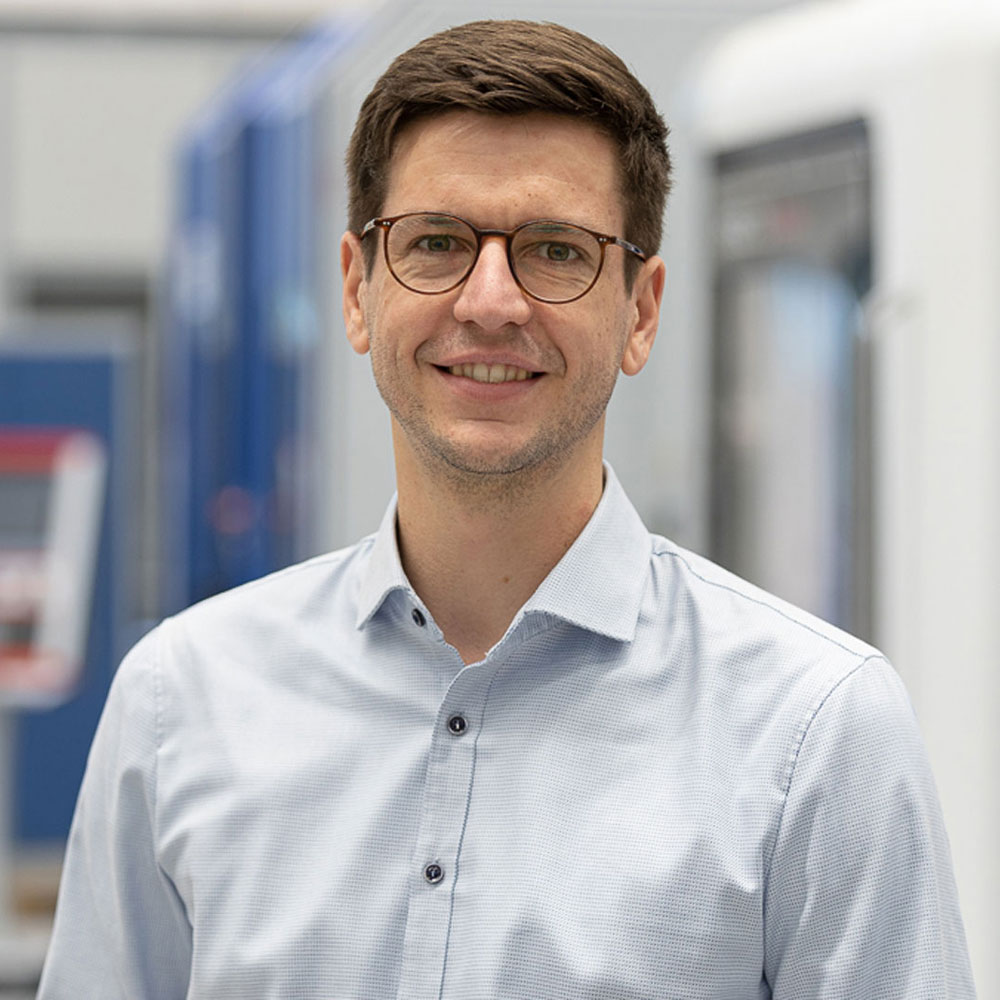Reading time: 7 minutes
‘Future-proofing’ is an apt description for companies assessing their future viability. Quarterly reports only cover one fourth of a year, but if a company is to be successful for another 50 years –or until the grandkids take over– it needs to settle in for the long haul. Which can take 333 years.
It’s difficult to establish with certainty, but the trade magazine Lebensmittelpraxis calls the PONNATH family group “the oldest family business in the meat trade” – which seems possible as this company has indeed been in business for several centuries. Though in the meat industry especially, there are many contenders for this title.
Through the centuries
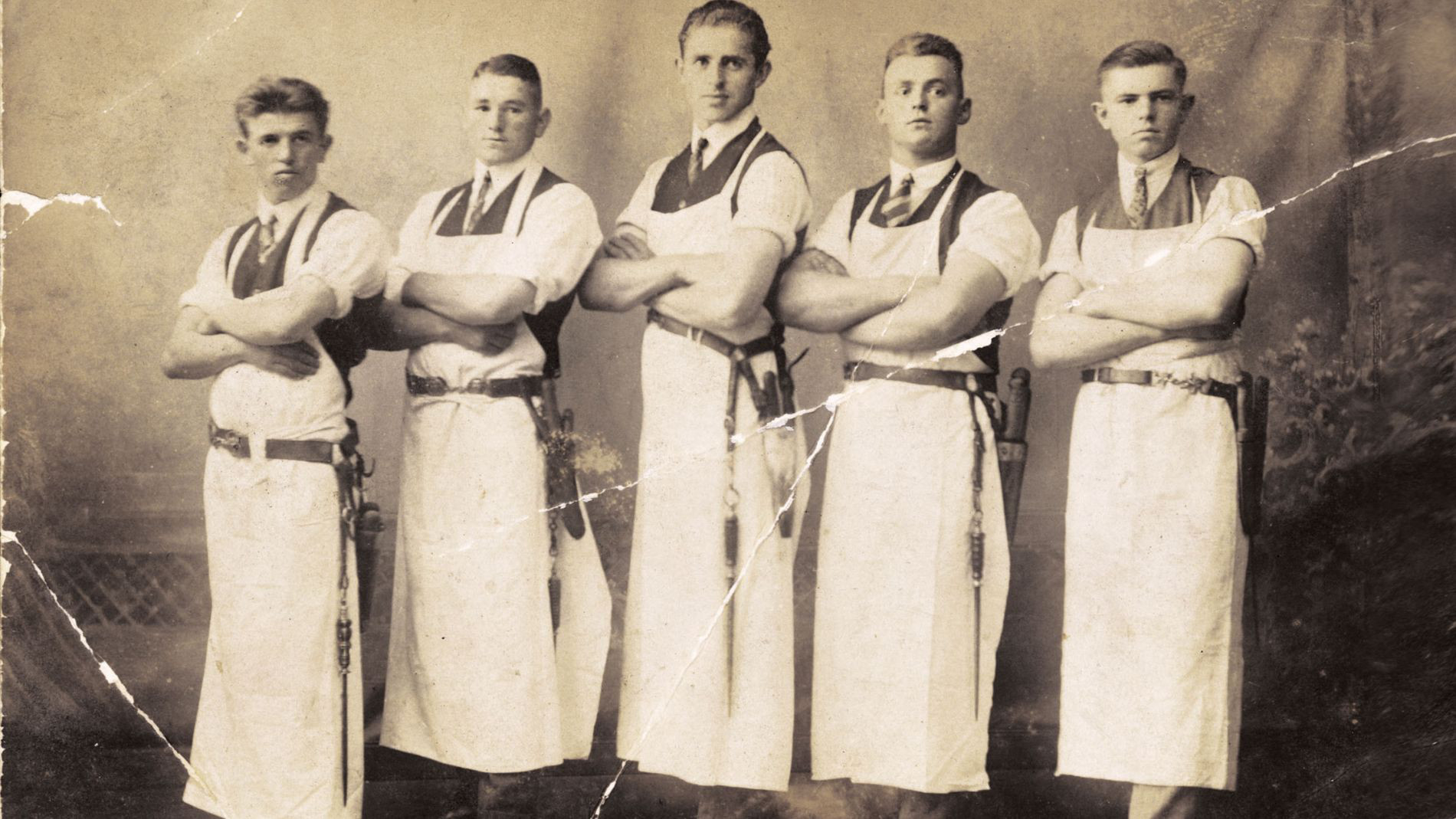
Once upon a time in 1712, a small note penned into a wedding document states that the groom and his father before him were butchers. In 1692, Johann Adam Ponader founded his first business in Kemnath, Bavaria, building on his father’s knowledge. This business was later taken over by Johann Adam’s sons, Johann and Georg. The name morphed from Ponader to Ponather or Ponath (Anton Ponath) until settled as Ponnath with Josef, Hans, and Max in 1840. 333 years and eleven (!) generations later, the PONNATH family group has become a major food manufacturer, producing premium sausages, hams, convenience foods and vegan products. 333 years!
Max Ponnath I died in Crimea during the First World War. He was succeeded by Max Ponnath II, who was born in 1937 and ushered in an era of rapid growth in the 1960s. Following the 300th anniversary in 1992, Michael Ponnath took over from him and led the PONNATH family group into the future through acquisitions, internationalisation, new locations, and entry into the organic, convenience, and finger food markets. This was achieved through the takeovers of ‘Vegan Empire’ and ‘Rodag Food’, as well as the in-house production of vegan products under the ‘VANTASTIC’ brand.
The company's website illustrates the concept of 'future-proofing' with a quotation from the French historian and socialist reformer Jean Jaurès (1859–1914): “Tradition is not the preservation of ashes, but the passing on of fire.”
At Ponnath, tradition and sustainability appear to go hand in hand. The commitment to environmental and climate protection is justified by the simple statement “Because we love our homeland”, while animal welfare is referenced as “our welfare” too.
Renewal from generation to generation
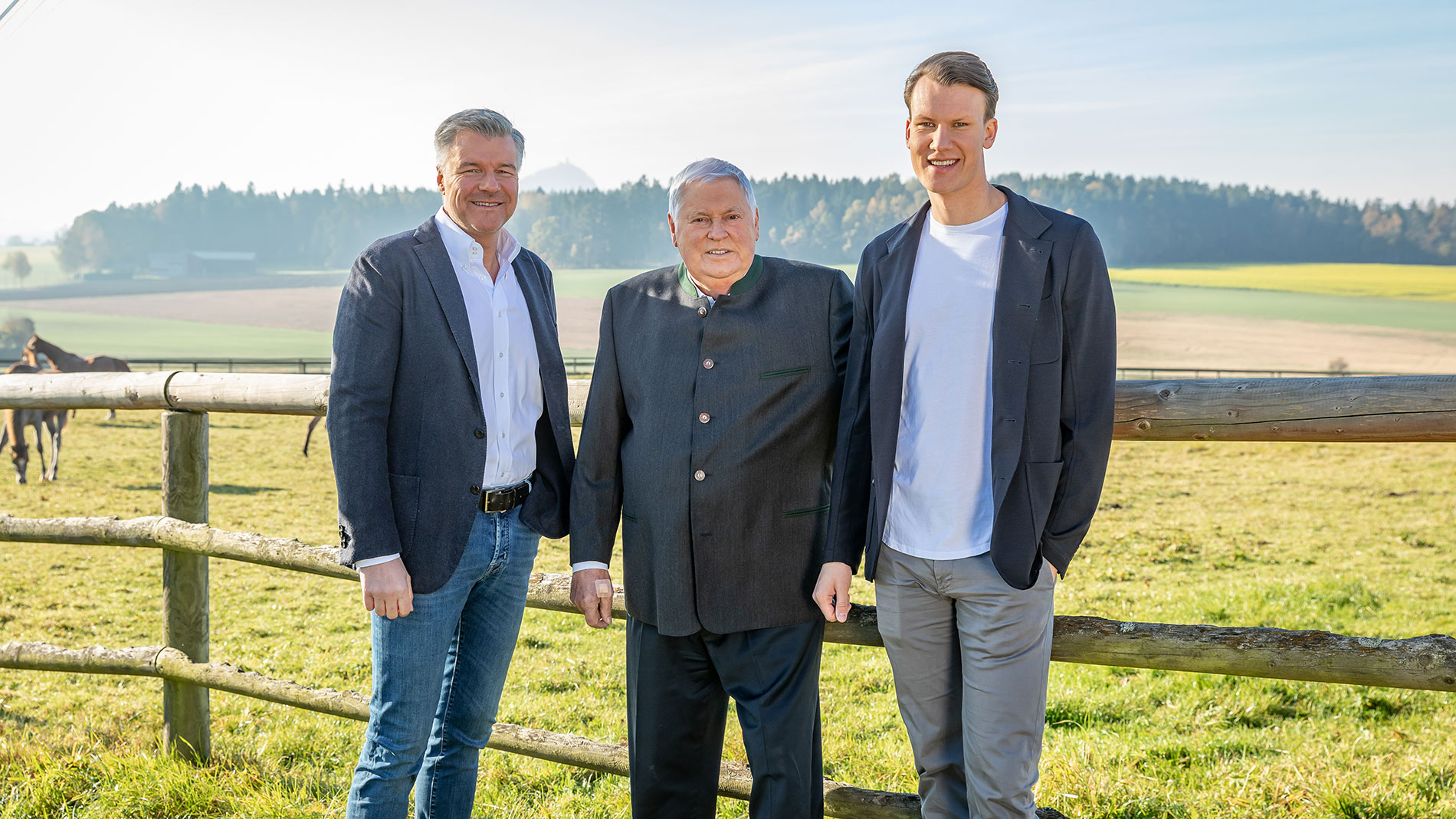
“We can look back on 333 years of tradition in the butcher’s trade, and we are proud of that,” says Michael Ponnath in an interview with the magazine “LP. Lebensmittelpraxis”. “I feel good because my son Max is in line to take over in the next generation and he has now actively joined the company and is getting to know the business.”
Max Ponnath – the Third, but he doesn’t call himself that – studied business administration in St. Gallen. Next to the topics of human resources and the shortage of skilled labourers, he is currently focusing on the strategic direction of the vegan product range: “Switching to vegan products expands our target group. ‘Vegan’ is a term that most consumers directly understand, similar to ‘organic’. This is different with sausage products, where the differences in farming methods are generally far less well known. But with vegan products, consumers know exactly what they expect and what the product promises.”
The traditional handover of a business from parents to their children has a lot of potential for renewal, given the natural differences between generations – put simply, the ‘senior’ buys the machines and the ‘junior’ networks them. The culture in small and medium-sized companies, often family businesses, is characterised by a great deal of ‘staying power’, adaptability, and innovation potential. It is no coincidence that SMEs are a well-respected market power in Germany, producing many ‘hidden champions’: medium-sized companies that are not widely known but are market leaders in their fields and enjoy international success.
The good and the bad in family businesses
Around 60 per cent of all employees in Germany work in family businesses with strong regional ties. According to a 2024 study by the Allensbach Institute, commissioned by the Stiftung Familienunternehmen (EN: Association for Family Businesses), these businesses are primarily associated with long traditions, job security, and a long-term outlook – all of which have gained in relevance over the last five years. A 2023 study by auditing firm PwC found that 86 per cent of 18 to 29-year-olds surveyed would like to work for a family business.
According to the same PwC study, however, respondents are sceptical about the competitiveness of family-owned companies compared to corporate groups. It seems to be a general view that family businesses have underestimated potential in terms of internationalisation, resilience to crisis, and innovative strength. On top of that, an increasing number of young applicants would prefer to first gain experience working at start-ups.
“Being popular is not enough. Family businesses need to communicate more clearly and close the gap between facts and public perception, because they have a lot more to offer than people realise,” says Uwe Rittmann, Head of Family Businesses and SMEs at PwC Germany.
Sustainability expert Dr Beate Gebhardt also voices some critical comments. She disagrees with the theory that the cross-generational planning horizons of family businesses inevitably lead to more sustainable corporate management:
“No, this connection does not necessarily exist, at least not in the sense that ‘future-proofing’ is about sustainability. In Germany, there are also family businesses that give up or are openly criticised for their unsustainable business activities and have been awarded negative awards.” You can read the full interview with Beate Gebhardt on the topic of ‘future-proofing’ here.
Succession at Handtmann
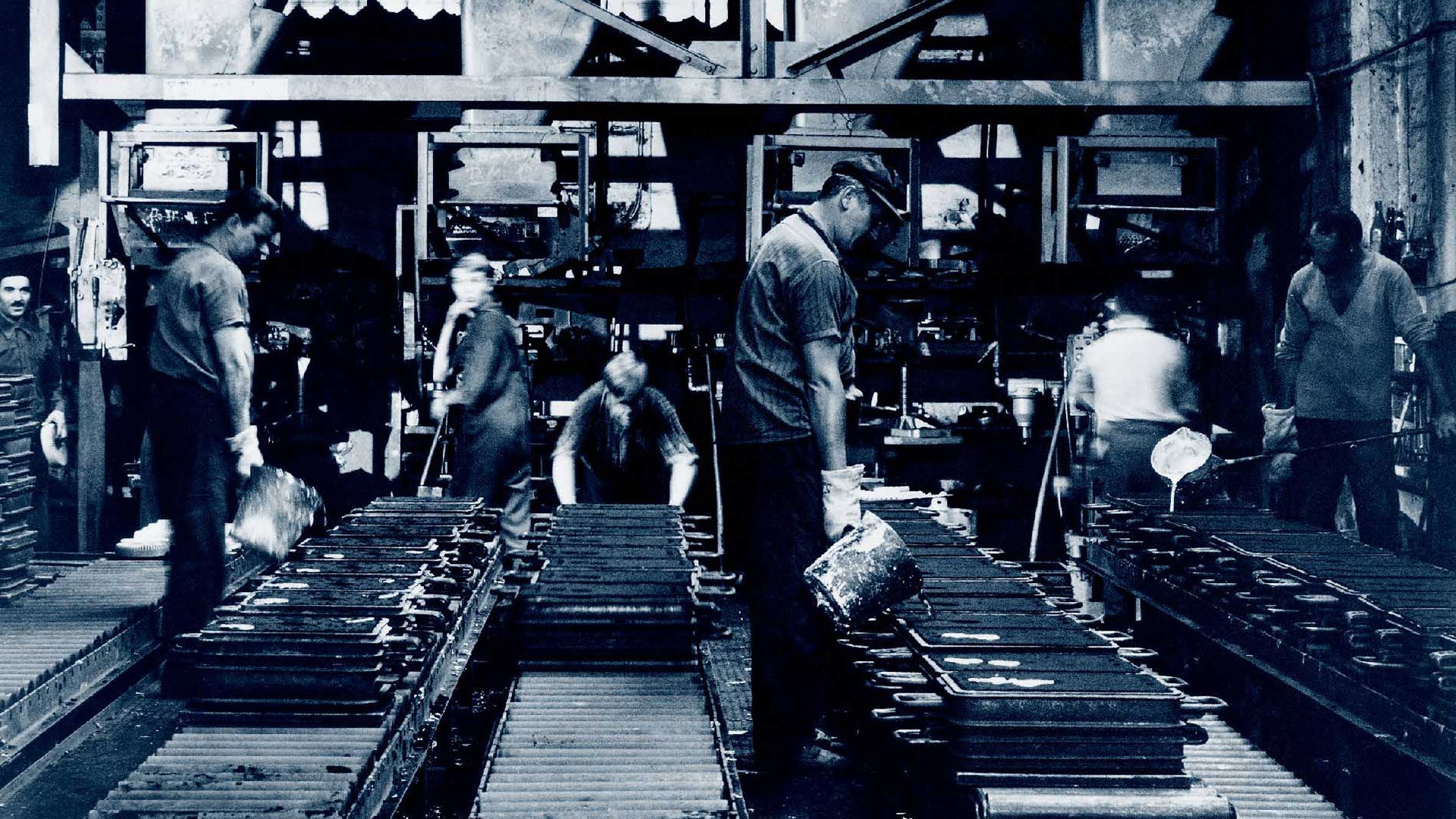
The globally successful Handtmann Group of Companies was founded by bell founder and master mechanic Christoph Albert Handtmann (1845–1918) and is now in its fifth generation. Two years ago, Thomas Handtmann handed over the reins to his son Markus Handtmann and his nephew Valentin Ulrich. The succession of generations at Handtmann is not only characterised by constant innovation, but has also led to significant technological advances – from the simplest hand-moulded fitting to complex data-driven process solutions.
Founded in Biberach in 1873 by “a family that has remained rooted in the local economy and society over the centuries”, as stated in the company chronicle, the company did not shy away from expanding internationally. The second division was actually established, according to the chronicle, when Arthur Handtmann was asked to build a hand-operated sausage filling and portioning machine in 1954.
Handtmann clearly refutes the negative prediction that family businesses with local roots would struggle to achieve international success: the technology company is currently active in 100 countries worldwide. Its areas of expertise include light metal casting and system technology for the automotive supply industry, plastics, plant engineering, and e-solutions. They are leading experts in food processing and are driving forward the transformation of food processing in a global innovation network, particularly with regard to food and here in particular meat products.
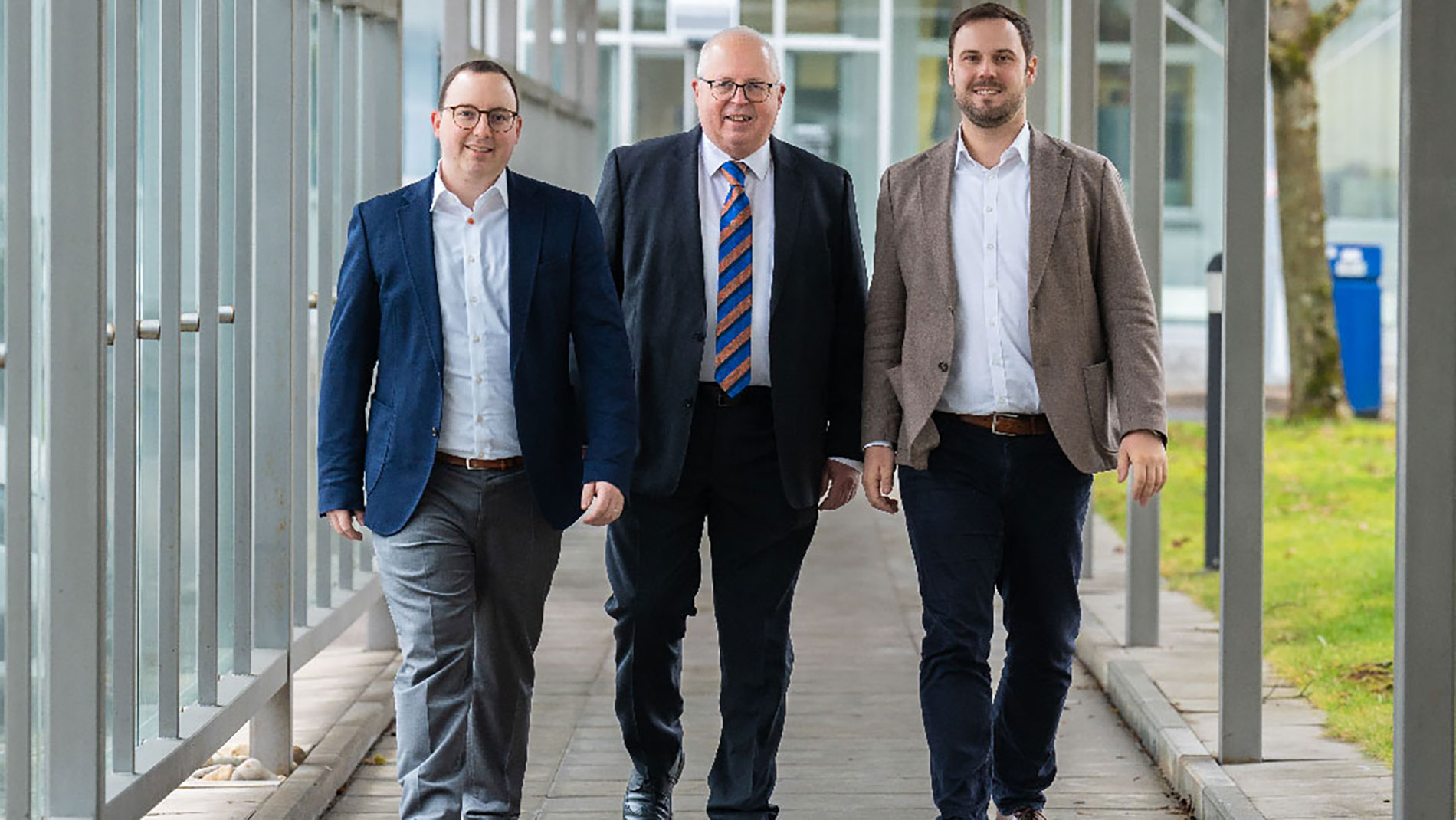
Thomas Handtmann views the handover to his son and nephew in 2023 as a “necessity given the finite nature of life”, and suggests that “at some point, you must have the courage to retire before it falls to your loved ones to realise that you missed your exit”. Markus Handtmann and Valentin Ulrich have jointly managed the Group as co-CEOs since then. What plans and ideas will the fifth generation use to shape the company? “Topics such as internationalisation, innovation, digitalisation, and openness to new ways of working are crucial for the future of Handtmann. We will invest in these and other areas to create sustainable value for our customers, employees, society, and our company group,” says Valentin Ulrich.
Heavy is the head that wears the crown… sometimes
The handing over of the business to the next generation does not always go this smoothly, however. Family businesses with their wealth of experience have developed strategies to avoid unsuccessful successions. One such practice is to evaluate the company heir that the family has chosen against an external candidate in an objective way.
And then there are family businesses who cannot ‘future-proof’ their companies without the help of external replacements, either because there are no suitable family members or because they lack the necessary qualifications – and this is the case in many such companies. According to the 2024 KfW Succession Monitor report, around 626,000 companies in Germany plan to hand over management by the end of 2027. “At the same time, over 250,000 businesses are facing closure, often because there are no suitable successors,” the report states.
In addition to the established avenues – such as approaching employees in the own company, working towards a management buyout, mediation by professional associations, recruitment agencies, or advertisements in business and trade journals – there is also the platform nexxt-Change1 for company handovers.
Many entrepreneurs prefer to take over an existing business rather than set up a new one. The platform coordinates supply and demand, and the chambers publish placement requests under a code number, providing advice on how to state the search.This placement service is used by all chambers throughout Germany and is free of charge.
There are many ways for companies to achieve sustainability for future generations – even if it’s not through their own descendants. All companies, large and small, face this crossroads. In the meat industry in particular, hundreds of companies started out as simple butcher’s shops and have grown steadily over the decades, expanding or diversifying thanks to their long-haul mentality. Their strategy was sustainable –we see with the benefit of hindsight– when they maintained the right balance between economic, ecological, social, and technological considerations. Now, the next generation can take the wheel and guide the companies into a future where building on a solid foundation can only help. The only problem is that you can only ever truly know whether something has worked when you look back.
1 The nexxt-change platform is an official succession portal of the German Federal Government. It supports entrepreneurs looking for a successor for their company, as well as founders looking to take over an existing business.
Shaping tomorrow –
Acting future-proof today

The article series ‘Shaping tomorrow – Acting future-proof today’ focuses on global trends in sustainable food and protein processing. Whether butchers, machine manufacturers or the food industry, the focus is on value-based, sustainable business practices across several generations.
Do you know of an exciting family business that would fit into our series? Then we would love to hear your suggestions.
